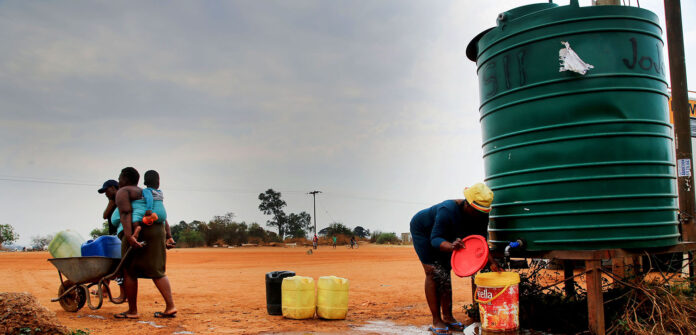Parliament’s Select Committee on Cooperative Governance and Public Administration (Traditional Affairs, Human Settlements and Water and Sanitation) resolved to give the administration of the Knysna Local Municipality 14 days to provide a clear plan to address its water and sanitation challenges.
This was revealed by the committee’s spokesperson Malatswa Molepo.
Molepo said the committee visited the municipality on Tuesday to assess the constitutional, procedural and substantive matters related to the intention of the Western Cape provincial executive to invoke section 139 (1) (c) of the Constitution in the municipality.
Water pumps at heart of issue
The committee’s chairperson, Mxolisi Kaunda, said parliament found that the municipality has not dealt with the issue of broken water pumps.
“While we note the general agreement among stakeholders of the improved administrative and governance processes in the municipality, we are concerned that many stakeholders highlighted the issue of broken water pumps. The provision of quality water and sanitation is critical to the socio-economic well-being of residents,” said Kaunda.
Molepo said the committee emphasised the importance of providing reliable water and sanitation services to ensure the sustainability of the tourism industry, which is the lifeblood of economic activity in the municipality.
“The committee received substantial presentations on the Western Cape government’s intention to invoke Section 139 (1) (c) of the Constitution and dissolve the municipal council. One of the major issues was the non-functioning water pumps. And this affected the availability of water and led to sewerage spillages in the municipality.
“The committee emphasised that the municipality must have a clear plan to resolve the dispute with the service provider appointed to maintain the water pumps to ensure quality services to the people,” said Molepo.
Administrative stability
He said various stakeholders also informed the committee that they have observed improvement in political and administrative stability since the appointment of the current administration.
“Some were concerned that the invocation of Section 139(1)(c) would not address longstanding challenges. These include ageing infrastructure, and others expressed their concerns about perceived political undertones in the decision to intervene. They suggested that the intention was not to primarily resolve the municipality’s problems.
“The committee was informed that the municipality has filled senior management positions. [These] will ensure a strategic focus in implementing the municipality’s objectives as encapsulated in the Constitution. Furthermore, the committee was informed that the council is sitting regularly, and that all committees, especially the Municipal Public Accounts Committee (MPAC), are functional,” said Molepo.
Recommendations to the NCOP
Molepo said after receiving the representations from all internal and external stakeholders, the municipality will convene on Thursday to reflect and make a decision in terms of Section 139(2)(b)(ii) of the Constitution.
He said the municipality will then submit recommendations to the National Council Of Provinces (NCOP) plenary scheduled for Friday. That is where a final decision will be taken.
“The committee was impressed and appreciated the attendance of stakeholders,” said Molepo.



